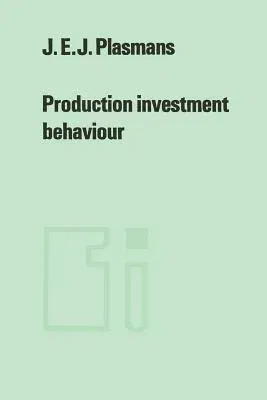J E J Plasmans
(Author)Production Investment Behaviour: Application to Six Eec-Countries (Softcover Reprint of the Original 1st 1975)Paperback - Softcover Reprint of the Original 1st 1975, 22 April 2012

Qty
1
Turbo
Ships in 2 - 3 days
In Stock
Free Delivery
Cash on Delivery
15 Days
Free Returns
Secure Checkout
Part of Series
Tilburg Studies in Economics
Print Length
350 pages
Language
English
Publisher
Springer
Date Published
22 Apr 2012
ISBN-10
9401178275
ISBN-13
9789401178273
Description
Product Details
Author:
Book Edition:
Softcover Reprint of the Original 1st 1975
Book Format:
Paperback
Country of Origin:
NL
Date Published:
22 April 2012
Dimensions:
22.86 x
15.24 x
1.88 cm
ISBN-10:
9401178275
ISBN-13:
9789401178273
Language:
English
Location:
Dordrecht
Pages:
350
Publisher:
Series:
Weight:
476.27 gm

